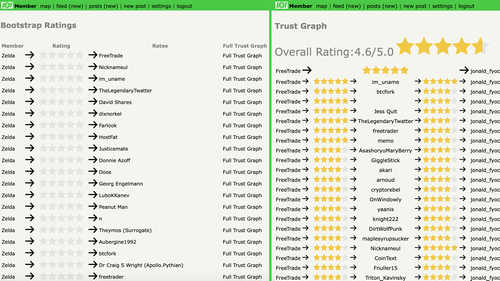The SSRN (formerly the Social Science Research Network), is a repository and international journal for the sharing of scholarly research. The service is owned by major publishing house Elsevier, and allows paper authors (or those claiming to be) to upload pdfs of their work.
Craig Wright, the Australian entrepreneur who controversially says he’s bitcoin’s anonymous inventor Satoshi Nakamoto, has made another attempt to cement that claim in the public domain.
On Thursday, Wright posted the bitcoin white paper on the scientific journal hosting site, SSRN, citing himself as the author on Aug. 21, 2008.
The hosting site does not peer-review papers that are uploaded, according to its website. Uploads are reviewed by SSRN staff “to ensure that the paper is a part of the scholarly discourse in its subject area.” It also asks authors to self-certify that the information submitted is correct.
Wright’s posting of the bitcoin white paper, the authorship of which has yet to be conclusively proven, comes after he filed registrations with the U.S. Copyright Office to support his claim of authorship over the original bitcoin code and white paper in May.
Soon after the news caused uproar in the bitcoin community, the Copyright Office released a statement to dispel the notion that it had officially “recognized” anyone as the inventor of bitcoin.
“As a general rule, when the Copyright Office receives an application for registration, the claimant certifies as to the truth of the statements made in the submitted materials. The Copyright Office does not investigate the truth of any statement made”, the office said at the time.
Similarly, Wright’s posting of Satoshi’s white paper on the SSRN is unlikely to give his claim to have invented bitcoin any more validity, but seems to be an attempt to populate the web with authoritative-looking instances of his claim.
Some commentators have further claimed that the metadata of the paper posted by Wright has been altered to display a different date of creation.
Chainalysis to Monitor AML Compliance for Crypto Exchange CoinField
Amid a tightening regulatory scene in crypto, blockchain analytics firm Chainalysis has joined up with digital asset exchange CoinField.
CoinField plans to use Chainalysis technology to help with its Anti-Money Laundering, or AML, practices, Chainalysis announced on Feb. 20.
Crypto leaves the Wild West behind
Media outlets have drawn correlations between the relatively new crypto industry and the Wild West – a niche industry running rogue far from the regulatory spotlight.
Over the past two years, however, governing bodies across the globe have cracked down on the industry, shutting down platforms, fining ICOs and adding requirements.
The European Union, or EU, in particular has tightened its leash on AML practices, introducing new regulations known as 5AMLD. In January, crypto derivatives exchange Deribit announced its departure for Panama, leaving the EU-regulated Netherlands and escaping 5AMLD.
Keeping up with the trend of regulatory expectations and policing, CoinField said it will harness Chainalysis’ Know-Your-Transaction, or KYT, technology to keep an eye out for money laundering and other illegalities.
The Chainalysis tech CoinField will use pertains to movements around numerous crypto assets, including Bitcoin, Litecoin, Ethereum and others.
CoinField and Chainalysis both shoot for transparency
Chainalysis and CoinField aim to please regulators worldwide. «We both believe compliance is critical to the mainstream adoption of cryptocurrency, and we look forward to partnering with CoinField to promote the safe use of cryptocurrencies globally”, Chainalysis’ Chief Revenue Officer Jason Bonds said in the announcement.
In addition to employing Chainalysis’ KYT solution, CoinField said it plans to work with the blockchain analytics company’s Chainalysis Reactor as a way to dive deeper into perspicuous situations.
Chainalysis is a significant player in the crypto and blockchain space. The organization has provided significant data into a number of crypto-related thefts in recent years.
Cointelegraph reached out to Chainalysis for additional details, but received no response as of press time. This article will be updated accordingly should a response come in.


